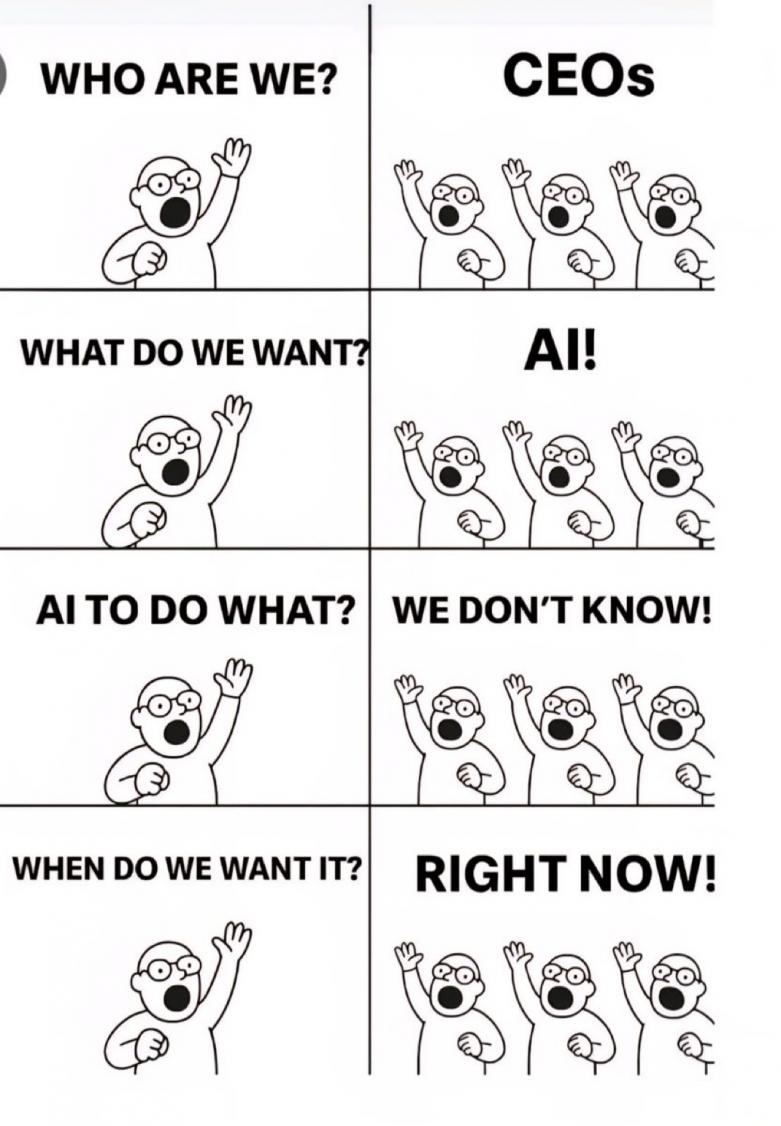
Posted on 09/04/2025 5:06:50 PM PDT by anthropocene_x
A recent survey of AI and labor data by a team of researchers at Stanford's Digital Economy Lab uncovered some of the first comprehensive evidence that the AI industry really is throwing the job market into flux. The scholars compiled three years of payroll records on millions of US workers at tens of thousands of businesses, allowing them to identify long-term trends according to jobs and age groups. Their first finding was a dramatic decline in employment for entry-level knowledge workers aged 22 to 25 years old, whose occupations are at the highest theoretical risk for automation — a metric called "AI exposure." These are workers in office gigs whose day-to-day tasks have a lot of crossover with AI functions, like software engineers, service workers, and marketing professionals.
(Excerpt) Read more at futurism.com ...
“AI is being misused, just to make more profits. “
How is it being misused?
By eliminating human beings in the process. I don’t think that is the right way to use it. Why not try to still involve human beings and enhance their ability to work instead?
“By eliminating human beings in the process.”
It doesn’t eliminate humans. It frees them up to do more productive work.
And another thing that is never mentioned - the lawyers. One can be assured there will be more lawsuits than we can count by people (honestly or dishonestly) by anything that is built with substantial AI in it. The product or service using an AI program is going to be targeted whether it works or causes harm until the dust settles and it is going to take many years.

I know a handyman in the Nashville area who averages $700/day (and his phone never seems to stop ringing).
As the article said, the young and inexperienced are being left out of the process. You might be able to do more work, because you have thirty years experience. However, somebody fresh out of coding school isnt getting his foot in the door because AI is doing his work.
wonder how much AI will be touted in financial news media when we start seeing CFOs and investment strategists having their jobs taken by AI...
Companies still have to have people who know how to use AI.
I use it in chemistry all the time, but you have to be really specific about what you ask and you have to be able to understand its output.
You could apply this principle to any field—law, medicine, construction, etc. You have to know your material to effectively use AI.
I personally think these tech companies are feeling the increased pressure from higher interest rates, but are erroneously ascribing these job cuts to AI.
And I'll raise that bet that in 25-30 years, AI will generate a huge leap in robotics tech that will make tradesmen homeless or on welfare.
I thought that would happen back in 2010 when voice recognition software destroyed the medical transcription field. I’m still waiting for hospital administrators to realize that sending the work to third world countries to be performed by ppl who could barely speak English was a bad idea.
There could be all sorts of things, but one thing is certain.
They’d rather spend $0 on creating their technology through AI and $10 billion on engineers and programmers afterwards repairing the software. To them, thats the cheapest way to do things.
LEARN TO FARM.
How as AI affected your productivity?
Missing the point of AI.
It brings a division of researchers to your fingertips. Use it to become something that would have been too costly to become. Harness it, don’t run from it.
They said the same thing about the internet.
Well said. I use AI to analyze publicly traded companies, and what once took weeks—or was, for me, impossible—I can now do in hours. It’s like having a team of skilled associates at my fingertips.
Of course, I still double-check its work carefully.
AI is already reshaping the business landscape: reducing manpower needs in some areas while massively boosting the productivity of those who know how to use it well.
And it’s not just LLMs or generative AI like ChatGPT or Grok. Take Symbotic’s warehouse robotics: that AI is trained on a narrow, precise environment, so it doesn’t hallucinate. Robots can now pick, palletize, and even wrap items by store-specific aisle destination, so when a truck arrives, products roll straight to the right shelves. The result is profound productivity gains—denser warehouse storage, faster picking and palletizing, fewer distribution errors, less wasted time in stores, and quicker restocking.
Meanwhile, the U.S. faces a persistent shortage of warehouse workers. Robotic systems are filling that gap and keeping supply chains moving when labor alone can’t keep up.
Disclaimer: Opinions posted on Free Republic are those of the individual posters and do not necessarily represent the opinion of Free Republic or its management. All materials posted herein are protected by copyright law and the exemption for fair use of copyrighted works.